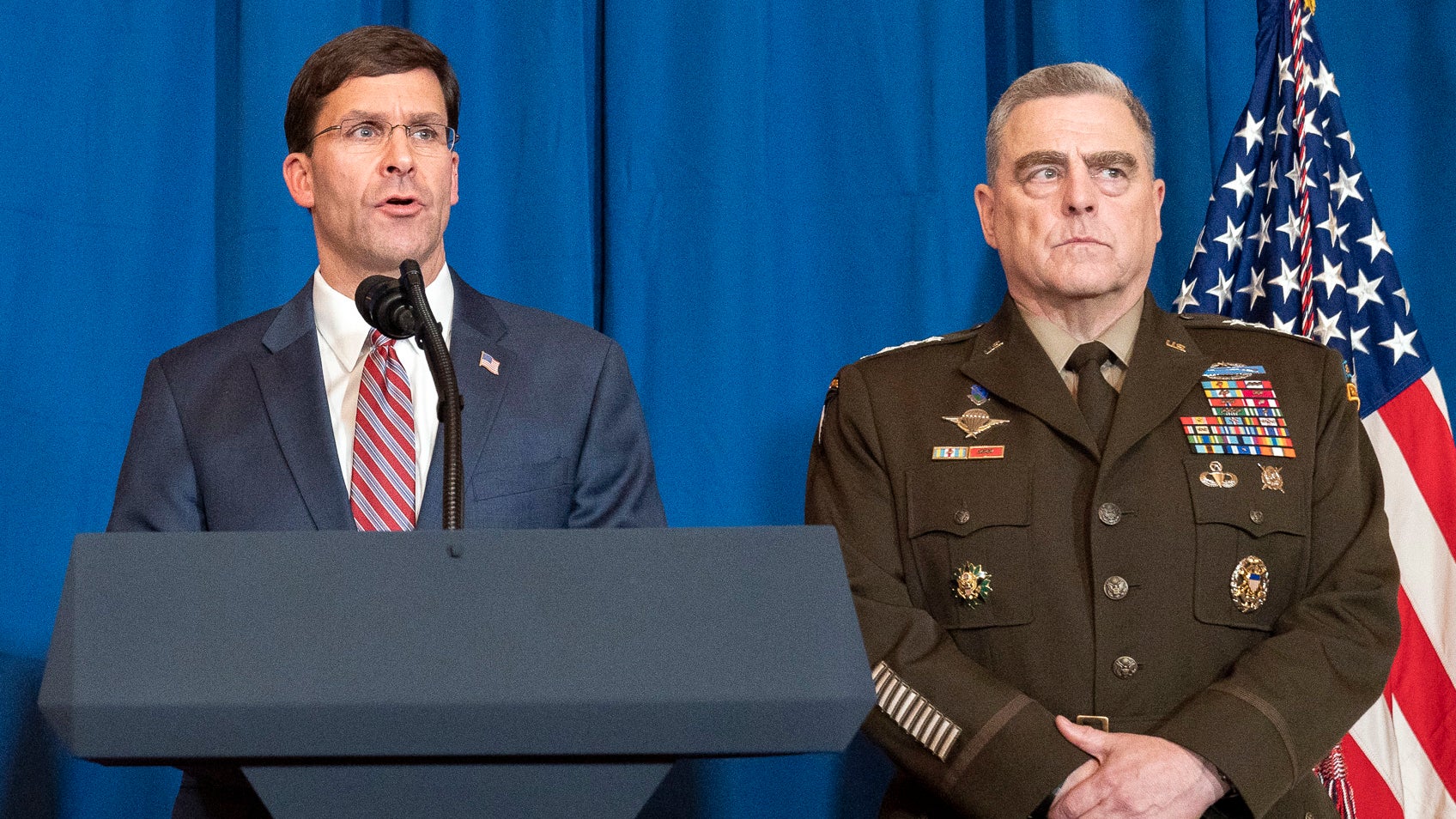Leaders Reassure Force Amid COVID-19 Fight
Leaders Reassure Force Amid COVID-19 Fight

Top Pentagon leaders sought to reassure the force even as the military and U.S. and local governments continue to tighten restrictions in an effort to limit the spread of the COVID-19 virus.
“I’m very confident that we’ll maintain mission readiness,” Defense Secretary Mark Esper said. “As this grows in scale and scope, this spread of the virus, we’re going to have to be very careful and take prudent measures to ensure we maintain that readiness.”
Esper, Chairman of the Joint Chiefs Gen. Mark Milley and Senior Enlisted Advisor to the Chairman Ramon Colon-Lopez spoke to and answered questions from troops, civilian employees and family members during a virtual town hall March 24.
The military has suspended travel for almost all personnel, including permanent change-of-station moves, delayed or canceled exercises, mobilized thousands of National Guard troops to support local communities, and implemented several other efforts to contain the virus.
“There will be an impact on readiness,” Milley said, adding, “I think it will be at the lower end.”
While the impact is expected to be low to moderate based on current data, DoD will assess the situation frequently as it evolves, he said. “[We] will get through this together,” he said. “We'll defeat this virus once and for all.”
Training and mission requirements will continue, Milley said, as he encouraged service members to listen to their chains of command and follow their guidance. PCS moves are halted through the middle of May unless a waiver is granted for moves deemed to be mission-essential or for humanitarian or hardship reasons.
“You will be on freeze, hold completely, for about 60 days and then we will reevaluate,” Milley said, adding that the exact timing remains flexible and service members who are scheduled to retire in the coming weeks are exempt.
On the medical front, Esper said military medical personnel are well trained, well stocked and ready to help—but there could be short-term shortages of personal protective equipment. To help with that, some elective medical procedures will soon be limited to free up medical professionals and equipment and reduce patient and provider exposure.
Beginning March 31, all elective surgeries, dental procedures and invasive procedures—such as laser surgery, colonoscopies and joint replacements—will be postponed for 60 days, unless they are required to maintain readiness or waiting is harmful to the patient, according to a DoD memo.
“We will be able to readjust our policies and get back to normal but, in the meantime, I am confident we have enough,” Esper said, referring to personal protective equipment.
The military is ready to respond to COVID-19 efforts for as long as the country needs, Esper said, and people should prepare themselves. Telework will continue “as long as necessary,” which could last weeks or months.
“We’re going to do this as long as the mission takes,” Milley said.

